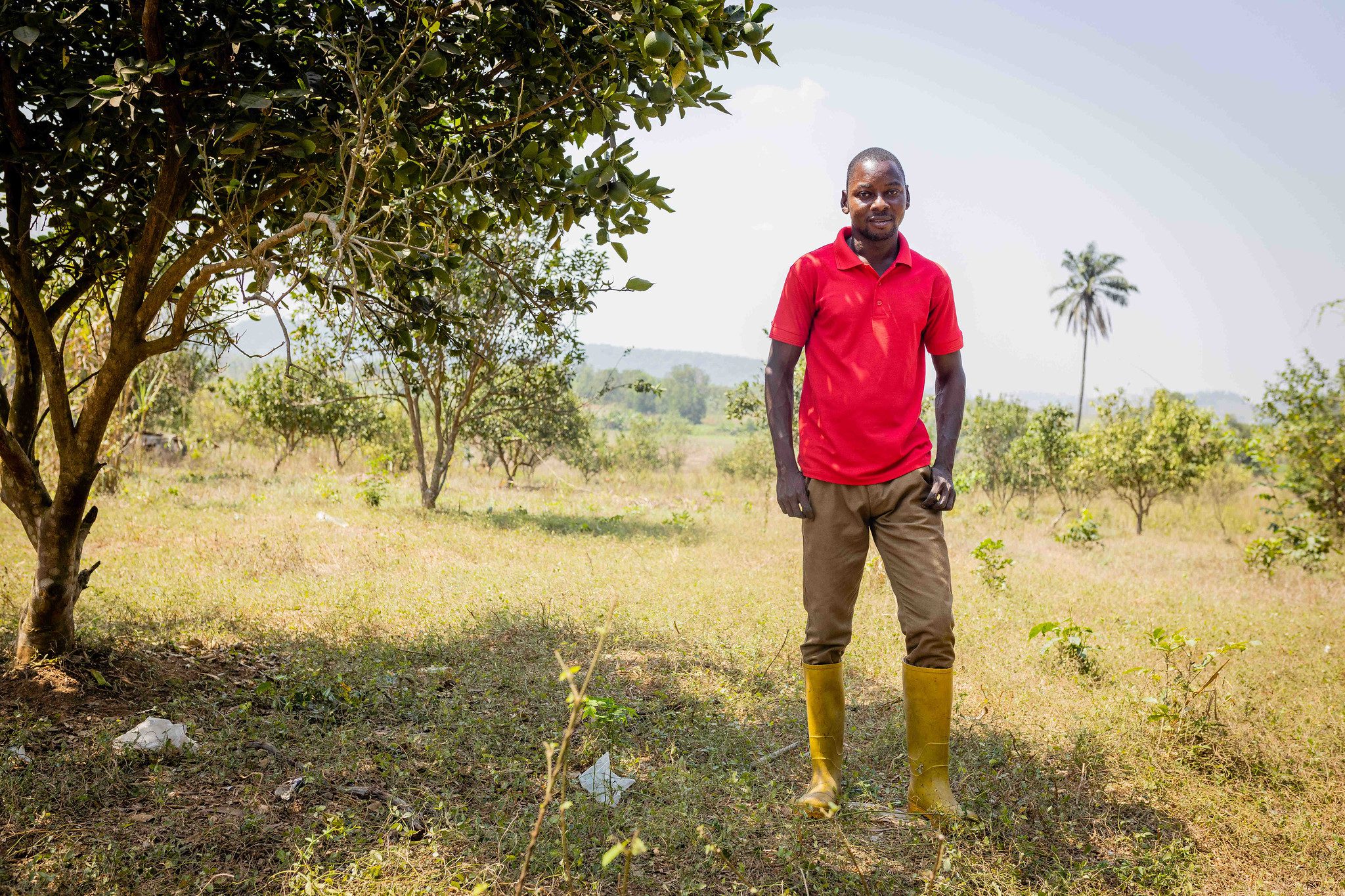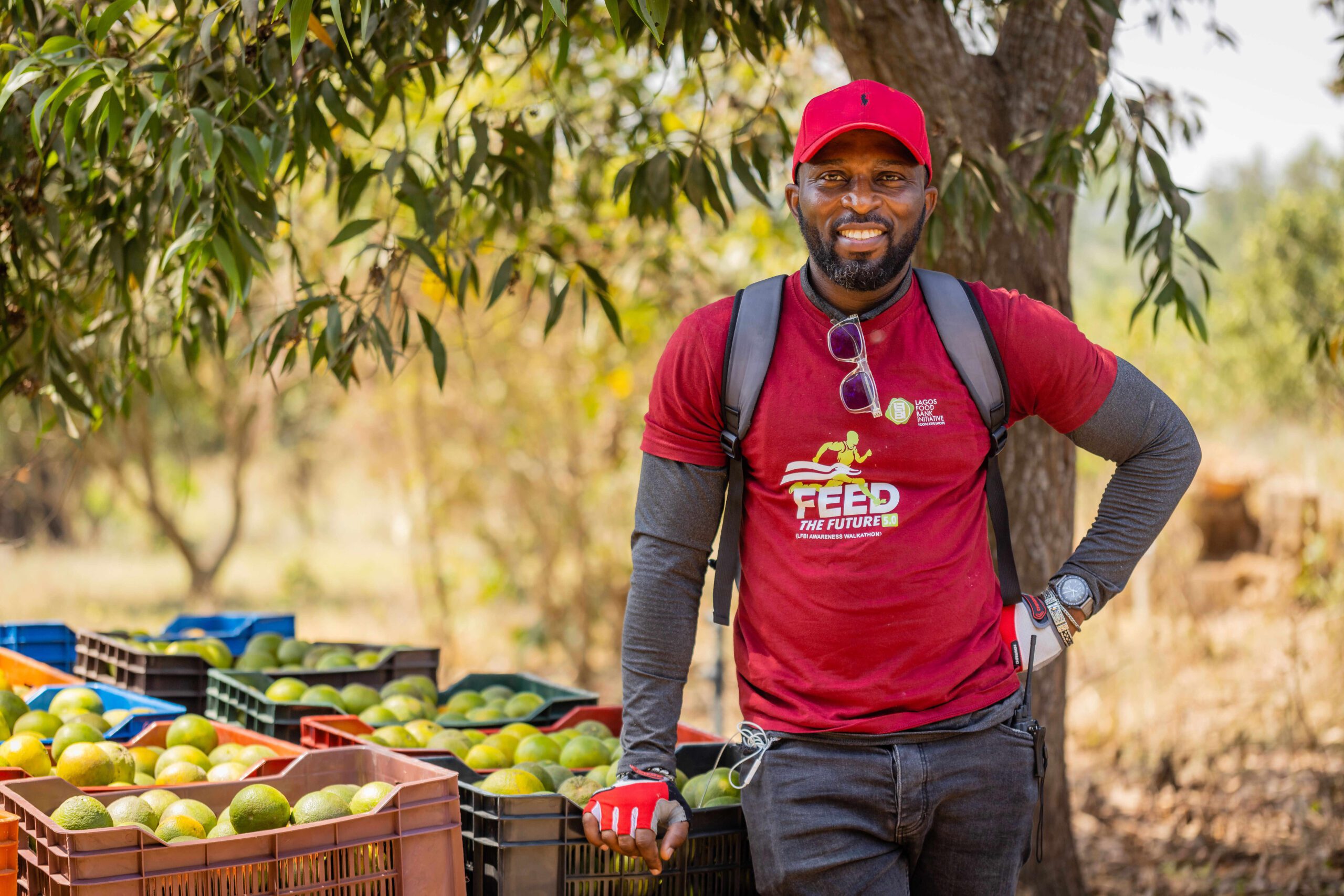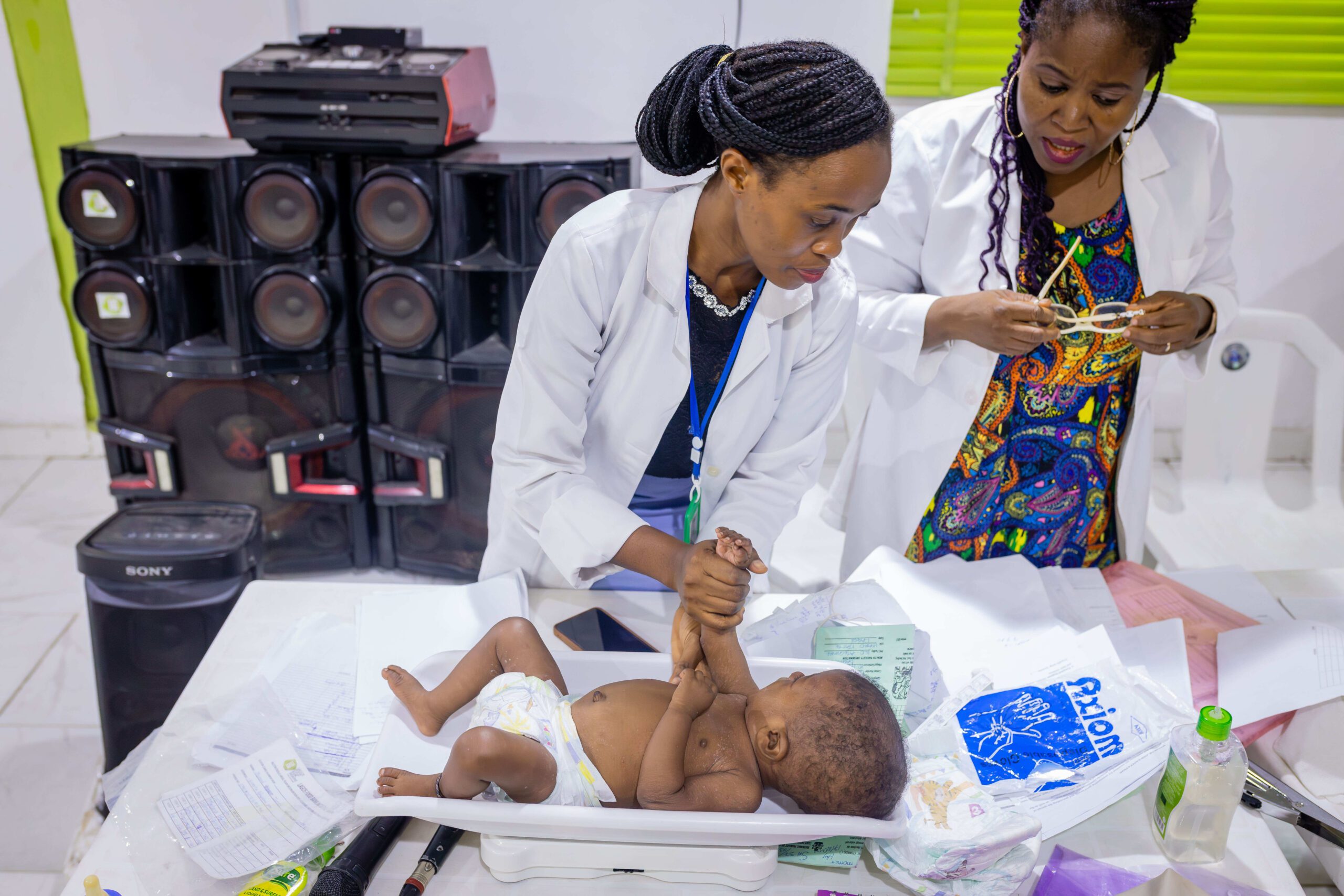Sunday Olufemi has been earning money from farming since he was about 5 years old. He started out helping clear weeds from a neighbor’s local gas station, using the money he earned to plow about a half-acre of land in his backyard for cassava and maize. From there, his farm work and his passion grew.
“Farming has become a part of me,” he said.
Now Olufemi is the manager of one of Fempanath Nigeria’s two large farms, this one located about two hours north of Lagos, Nigeria. At this location, Fempanath grows mostly citrus fruits like oranges and tangerines and some vegetables, including tomatoes and cucumbers, on about 150 acres of land. It uses a drip irrigation system to keep its plants hydrated, and like most farms, it has big issues when it comes to surplus produce.
“Food surplus has been a major challenge for farmers in Nigeria, especially here in the South West because of our long rainy season,” Olufemi said.
During the rainy season – when there’s no need for irrigation – backyard farmers throughout the area start planting, depressing the local market for produce and leading to excess. Olufemi estimates that about 50 percent of the farm’s production during the rainy season is surplus.
Now the farm has a new outlet for its extra produce. On a recent Monday in January, an enthusiastic group of volunteers from Lagos Food Bank Initiative fanned out across the farm, gathering up about 40 crates of sweet oranges that had already fallen from the trees and were at risk of deteriorating. The fruit filled a van that carried it all back by nightfall to the food bank’s warehouse, where it would be stored until it could be distributed to under-resourced communities throughout Lagos, the largest city on the continent.
“When we have surplus, the food bank will come and take it,” Olufemi said. “It’s a great advantage for us.”

Food surplus may be prevalent, but it is devastating when examined through the lens of food insecurity. In Nigeria, Africa’s largest economy with a gross domestic product of $44 billion, 116 million people – or 44 percent of the population – are moderately to severely food-insecure. At the same time, about 40 percent of all the food produced in the country is lost after harvest.
LFBI is addressing this imbalance by taking on the logistical challenge of redirecting surplus produce to people who need it. Its agricultural recovery program also keeps food from ending up in landfills, helping to reduce greenhouse gas emissions.
The Complex Work of Agricultural Recovery
But there’s a lot that needs to happen behind the scenes for the program to be successful. Fresh produce requires a cold supply chain, careful handling, and speedy distribution to ensure it doesn’t go bad. LFBI is addressing these needs by tapping some of the $2.8 million of funding that The Rockefeller Foundation allocated last year through The Global FoodBanking Network to help 13 food banks in ten countries across Africa, Asia, and Latin America address food insecurity and food waste.
With the funding, LFBI is adding a cold storage room to its warehouse to keep the produce fresh until it can be distributed, as well as solar-powered electricity and a backup generator to support it. Extra racking to store the produce is also necessary, as is a refrigerated van to transport it.
Michael A. Sunbola, president and executive director of LFBI, said he expects to collect about 3,000 to 4,000 pounds of fresh produce (about 1,500 to 2,000 kilograms) for every trip the food bank makes to recover surplus produce. “With the funding, we will be able to recover much more than what we’re currently recovering,” he said.
Adebisi Adedeji, a former farm manager, is spearheading the food bank’s new agricultural recovery program and identifies new potential farm partners. By early 2024, the food bank already had half a dozen or so partners and was expecting to add many more. “We want to recover as much produce as possible,” Adedeji said.
Challenges remain, including a highly unreliable road network. Fempanath’s farm, for example, lies about a mile from a main road, along a heavily potholed dirt pathway with peaks and valleys that can turn into a muddy mess during the rainy season. Even so, Adedeji hopes to make recoveries at this farm and others on a weekly basis.
Memories of Hunger
Agricultural recovery is the newest program at LFBI, an organization that is itself relatively new, having formed in 2016 at a time when food banking was a novel concept in Nigeria. “There was no such thing as a food bank when we started,” Sunbola said. “No one was thinking about a food bank.”
Sunbola, however, was thinking about it a lot. He had begun practicing as a lawyer in 2009, but memories of his early childhood kept tugging him in another direction. “Most of my memories of childhood are of not having enough food to eat,” he said, recalling going to bed hungry and to school hungry. “It is not a pleasant memory.”
Starting at age 6, he began fending for himself and his four siblings, running small errands to pick up spare change for food. Eventually, his family’s finances improved, giving him the ability to attend law school. But the memories of his hungry childhood would not go away. “I thought, ‘Why is this still coming back to me?’”
So he turned to the internet, using “food foundation” as his first Google search. That brought him to “food bank,” and specifically the Houston Food Bank in the United States. “I thought, ‘This is it. This is the model.’”

Sunbola initially used his own resources to support his fledgling food bank, sometimes heading to the market in his suit and tie after work to purchase dry goods or ingredients for prepared meals. LFBI eventually gained outside support and now operates in 160 communities and has reached 2.4 million people through nine programs.
With so many programs, the produce that the food bank recovers hardly has time to sit on a shelf before it is distributed. The produce collected from Fempanath’s farm, for example, found its way the very next day into the hands of hundreds of community members.
On that morning, LFBI hosted about 30 mothers and their infant-to-toddler children at its warehouse as part of a program that seeks to address Nigeria’s high rate of infant and maternal malnutrition. One of the moms, Toyin Koleosho, was pleased to report that her daughter Angel had benefited greatly from the nutritious food provided by the food bank every two weeks over the course of a few months.

The moms in the morning program received citrus from the Fempanath farm, with the remainder loaded up in the afternoon for distribution to a fishing community on an island off of coastal Lagos. Volunteers helped move hundreds of boxes of food and accompanying bags of produce by truck and then boat to the fishing village. With “the fish not coming like before,” Juliet Akwa, one of the recipients, expressed her happiness at receiving the food staples and produce for her two children, a boy and a girl, aged 3 and 7.
While produce recovery from farms offers all the satisfying benefits of reducing waste and simultaneously addressing food insecurity, Olufemi of Fempanath underscored perhaps the biggest upside to putting nutritious fresh food into the hands of people in vulnerable situations. It has to do with food being “an essential aspect of life,” he said. “There is a saying,” he noted, “that you ought to be paying farmers, not your doctor. Your food is your health.”
Chris Costanzo is the founder and editor of Food Bank News, a nonprofit publication that advances best practices in hunger relief.
Adebisi
March 21, 2024Good job…
Desmond
March 21, 2024Amazing! Very inspiring!!
Oluwasegun
March 22, 2024It’s a good feeling reading about these programs and the impacts it is making across various communities.
Kudos Lagos Food Bank Initiative, keep doing the good works.
Ramat
July 2, 2024I attended one of the outreaches and saw how involved the founder of LFB was; at the time I didn’t know who he was but his dedication left me in awe. Thanks for all you do for humanity.